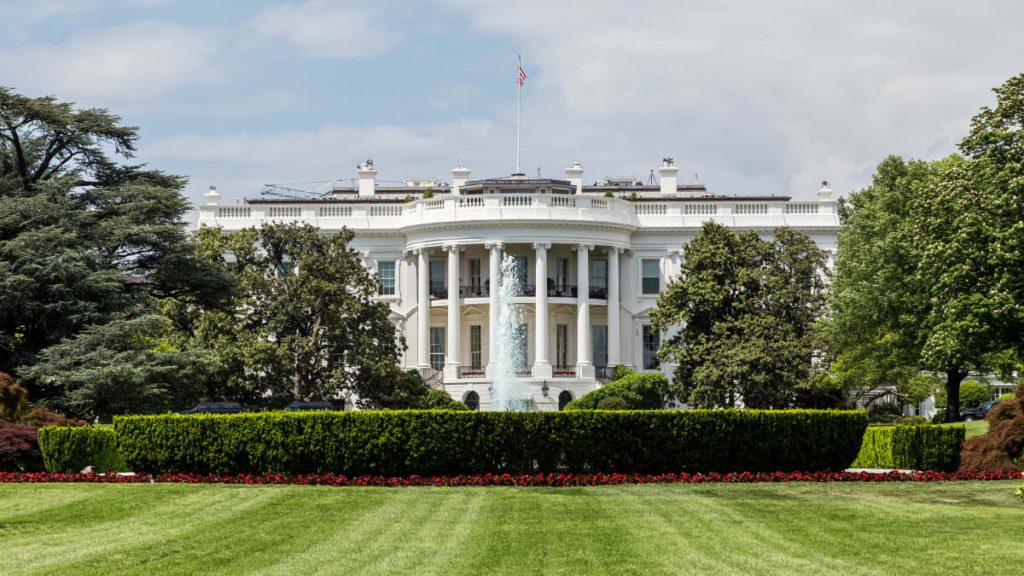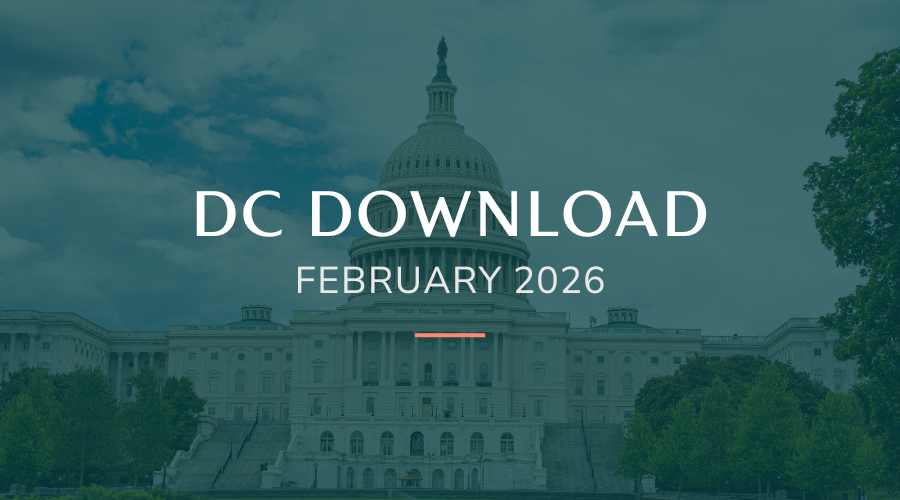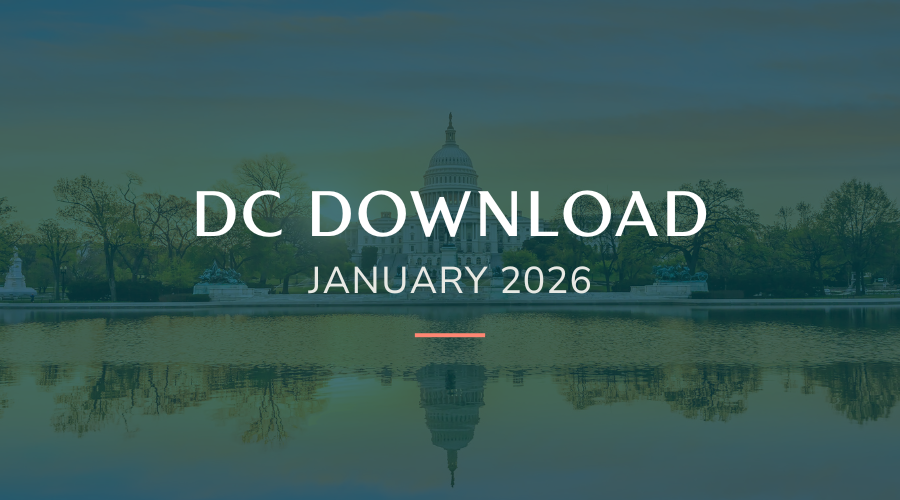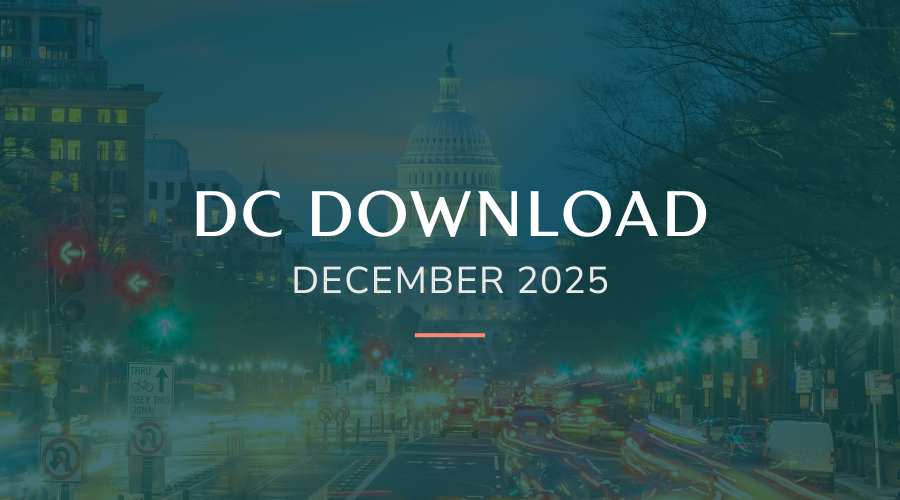It’s DC Download time, and the spooky season is upon us — literally! We have spent three weeks without an elected House Speaker, and we are less than a month away from another potential government shutdown. If you have had a tough time keeping up with the news, fear not. Here’s the latest from Washington, D.C. affecting nonprofit organizations.
Legislative Outlook
On October 3, House Speaker Kevin McCarthy (R-CA) was ousted from the Speakership after Rep. Matt Gaetz (R-FL) filed a motion to vacate because former Speaker Rep. McCarthy brought to the House floor a continuing resolution that averted a government shutdown. The House appointed Patrick McHenry (R-NC) as Speaker Pro Tempore.
Since then, Republicans have already seen two previous nominees in the past three weeks — Majority Leader Steve Scalise (R-LA) and Rep. Jim Jordan (R-OH) — drop out of the Speakership race after being unable to secure the 217 votes needed on the floor. Efforts to vote on granting Rep. Patrick McHenry (R-NC) additional powers as acting speaker stalled October 19 amid further disagreement within the Republican conference. We are entering the fourth working week period without an elected speaker. As of Monday, October 23, there were nine Republican members seeking to become the next Speaker of the House.
Without a Speaker, the House can’t advance legislation that includes any approach to extending government funding and other programs beyond the November 17 expiration deadline. We are less than a month away before another potential government shutdown. The White House sent over a national security request of more than $100 billion on October 20, and is expected to submit to Congress this week a separate domestic supplemental spending measure with funding for issues like disaster relief, childcare, and broadband.
Grantmaking Reform Bill Introduced in the House
On October 12, Representatives Virginia Foxx (R-NC) and Marie Gluesenkamp Perez (D-WA) introduced the bipartisan Streamlining Federal Grants Act (HR. 5934). The bill seeks to standardize and coordinate grant administration across the federal government to make it easier for communities and organizations to apply for grants. Back in July, Senators Gary Peters (D-MI), John Cornyn (R-TX), and James Lankford (R-OK) introduced the companion bill in the Senate (S. 2286).
Proposed Rule Guidance for Grants and Agreements
On October 5, the Office of Management Budget (OMB) issued a proposed rule to revise sections of the OMB Guidance for Grants and Agreements. The changes under the proposed rule reflect comments OMB received from federal agencies and the public. These revisions intend to advance the following objectives: incorporating statutory requirements and administration priorities; reducing agency and recipient burden; clarifying sections that recipients or agencies have interpreted in different ways; and rewriting applicable sections in plain language to improve flow and address consistent use of terms. Nonprofit organizations are encouraged to submit comments before the due date of December 4, 2023.
Back in September, the Biden Administration issued a statement on this fundamental rewrite of the Office of Management and Budget’s Uniform Grants Guidance to Federal agencies for use across all Federal grants and other types of Federal financial assistance. The Administration acknowledged that the conditions set for federal funding create burdens and unnecessary red tape for grant applicants.
Partners Ask Biden to Include Nonprofit Workforce Data Funds in FY25 Budget
On September 27, Independent Sector, along with 23 national nonprofit organizations, wrote a letter to President Biden urging him to include $4 million in his Fiscal Year 2025 budget request for the Bureau of Labor Statistics (BLS) Office of Employment and Unemployment Statistics to incorporate nonprofit organizations in the Quarterly Census of Employment and Wages (QCEW).
On October 3, Forbes published a piece echoing many of these arguments written by Timothy J. McClimon. As a former financial services executive and current nonprofit executive director, McClimon highlights the need and importance of data analytics for the nonprofit sector — the third largest employer in the country.
Volunteer Milage Bill Introduced in the Senate
On October 4, Senators Amy Klobuchar (D-MN), Ted Budd (R-NC), and Tina Smith (D-MN) introduced the bipartisan Volunteer Driver Tax Appreciation Act (S.3020) to support volunteer drivers. This bill would increase the federal tax deduction mileage rate for volunteer drivers from its current rate, 14 cents per mile, to be equal to the Internal Revenue Service (IRS) business rate, currently set at 65.5 cents per mile, provided the volunteer is transporting people or property on behalf of a charity. Back in April, Representatives Pete Stauber (R-MN) and Angie Craig (D-MN) introduced the companion bill in the House (HR. 3032). Please, take two minutes today to ask your legislators to fix the charitable mileage rate.



